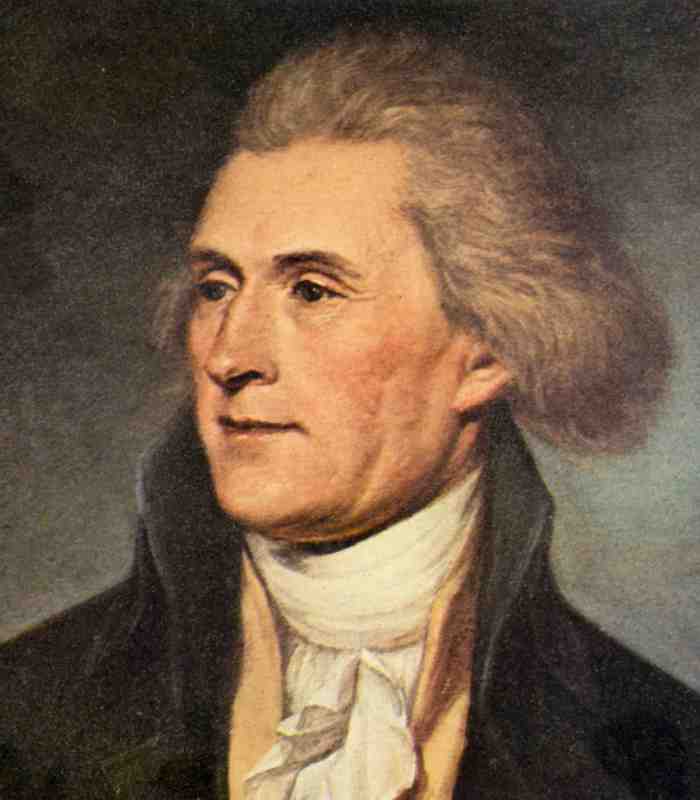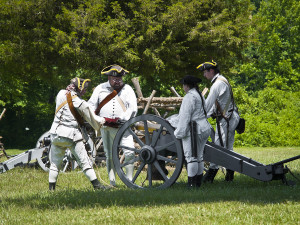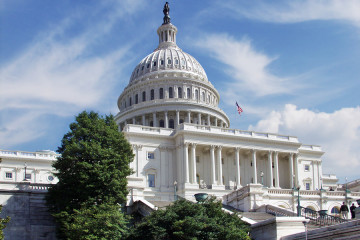Devotional 1/4: Thomas Jefferson Leads Us Into the New Year

We have made it into our 3rd year and therefore we want to talk about the Judeo-Christian values of our third president, Mr. Thomas Jefferson. Now I know that Mr. Jefferson is the founding father that all atheists and agnostics love to tout as an example of a person that shares their values. Without a doubt, some of his quotes can be seen that way. However, the truth is that Mr. Jefferson was a seeker, an intellectual, a person with a deep personal faith. This can be seen by balancing some of his actions and quotes against others.
While he made his Jeffersonian Bible (in which he cut out all the supernatural events, most of which Jesus kept telling people to not talk about anyway) he attended chapel services at the capital building on a regular basis (http://www.wallbuilders.com/LIBissuesArticles.asp?id=90).
While he is quoted as saying,
“Jesus’s “morality was the most benevolent and sublime probably that has been ever taught”
–Letter_from_Thomas_Jefferson_to_Dr_Joseph_Priestley_April_9_1803
(http://www.encyclopediavirginia.org/).
He also said,
“And the day will come when the mystical generation of Jesus, by the supreme being as his father in the womb of a virgin will be classed with the fable of the generation of Minerve in the brain of Jupiter. But may we hope that the dawn of reason and freedom of thought in these United States will do away with this artificial scaffolding, and restore to us the primitive and genuine doctrines of this most venerated reformer of human errors”
-Thomas Jefferson, Letter to John Adams, April 11, 1823
(http://www.nobeliefs.com/jefferson.htm).
However, he was clearly of one mind though when it came to the importance of the separation of church and state. Without a doubt, this has made the United States stronger and the power that it is today. No one deserves to hold a measuring stick to our beliefs except for the Lord himself. Nevertheless, one point that a lot of people have harped on a lot lately is the clause in the Constitution that says that the government shall make no law establishing any religion. However, they often conveniently forget the next part which says “…or restricting the free exercise thereof”.
Regarding Jefferson’s dedication to the separation of church and state,
As president, rejecting the precedent of both George Washington and John Adams, Jefferson refused repeated requests that he issue a proclamation for prayer or thanksgiving, insisting that such an official proclamation was outside the powers of the president and inconsistent with the First Amendment. At the same time, he openly prayed for the assistance of divine providence in both of his inaugural addresses, distinguishing private religious declarations, even when made in public, from the official declarations that he saw as unconstitutional.
(http://www.encyclopediavirginia.org/Jefferson_Thomas_and_Religion)
Despite the fact that Mr. Jefferson seemed to be all over the board on religion, it is clear that he was a man of value and his inaugural address reflects this. He was a man who knew that without the Lord, without the Infinite Power, our country is doomed. It is with that in mind that I share the following parts of his inaugural address:
March 4, 1801
FRIENDS AND FELLOW-CITIZENS,
Called upon to undertake the duties of the first executive office of our country, I avail myself of the presence of that portion of my fellow-citizens which is here assembled to express my grateful thanks for the favor with which they have been pleased to look toward me, to declare a sincere consciousness that the task is above my talents, and that I approach it with those anxious and awful presentiments which the greatness of the charge and the weakness of my powers so justly inspire. A rising nation, spread over a wide and fruitful land, traversing all the seas with the rich productions of their industry, engaged in commerce with nations who feel power and forget right, advancing rapidly to destinies beyond the reach of mortal eye — when I contemplate these transcendent objects, and see the honor, the happiness, and the hopes of this beloved country committed to the issue and the auspices of this day, I shrink from the contemplation, and humble myself before the magnitude of the undertaking. Utterly, indeed, should I despair did not the presence of many whom I here see remind me that in the other high authorities provided by our Constitution I shall find resources of wisdom, of virtue, and of zeal on which to rely under all difficulties. To you, then, gentlemen, who are charged with the sovereign functions of legislation, and to those associated with you, I look with encouragement for that guidance and support which may enable us to steer with safety the vessel in which we are all embarked amidst the conflicting elements of a troubled world.
During the contest of opinion through which we have passed the animation of discussions and of exertions has sometimes worn an aspect which might impose on strangers unused to think freely and to speak and to write what they think; but this being now decided by the voice of the nation, announced according to the rules of the Constitution, all will, of course, arrange themselves under the will of the law, and unite in common efforts for the common good. All, too, will bear in mind this sacred principle, that though the will of the majority is in all cases to prevail, that will to be rightful must be reasonable; that the minority possess their equal rights, which equal law must protect, and to violate would be oppression. Let us, then, fellow-citizens, unite with one heart and one mind. Let us restore to social intercourse that harmony and affection without which liberty and even life itself are but dreary things. And let us reflect that, having banished from our land that religious intolerance under which mankind so long bled and suffered, we have yet gained little if we countenance a political intolerance as despotic, as wicked, and capable of as bitter and bloody persecutions. During the throes and convulsions of the ancient world, during the agonizing spasms of infuriated man, seeking through blood and slaughter his long-lost liberty, it was not wonderful that the agitation of the billows should reach even this distant and peaceful shore; that this should be more felt and feared by some and less by others, and should divide opinions as to measures of safety. But every difference of opinion is not a difference of principle. We have called by different names brethren of the same principle. We are all Republicans, we are all Federalists. If there be any among us who would wish to dissolve this Union or to change its republican form, let them stand undisturbed as monuments of the safety with which error of opinion may be tolerated where reason is left free to combat it. I know, indeed, that some honest men fear that a republican government can not be strong, that this Government is not strong enough; but would the honest patriot, in the full tide of successful experiment, abandon a government which has so far kept us free and firm on the theoretic and visionary fear that this Government, the world’s best hope, may by possibility want energy to preserve itself? I trust not. I believe this, on the contrary, the strongest Government on earth. I believe it the only one where every man, at the call of the law, would fly to the standard of the law, and would meet invasions of the public order as his own personal concern. Sometimes it is said that man can not be trusted with the government of himself. Can he, then, be trusted with the government of others? Or have we found angels in the forms of kings to govern him? Let history answer this question.
Let us, then, with courage and confidence pursue our own Federal and Republican principles, our attachment to union and representative government. Kindly separated by nature and a wide ocean from the exterminating havoc of one quarter of the globe; too high-minded to endure the degradations of the others; possessing a chosen country, with room enough for our descendants to the thousandth and thousandth generation; entertaining a due sense of our equal right to the use of our own faculties, to the acquisitions of our own industry, to honor and confidence from our fellow-citizens, resulting not from birth, but from our actions and their sense of them; enlightened by a benign religion, professed, indeed, and practiced in various forms, yet all of them inculcating honesty, truth, temperance, gratitude, and the love of man; acknowledging and adoring an overruling Providence, which by all its dispensations proves that it delights in the happiness of man here and his greater happiness hereafter — with all these blessings, what more is necessary to make us a happy and a prosperous people? Still one thing more, fellow-citizens — a wise and frugal Government, which shall restrain men from injuring one another, shall leave them otherwise free to regulate their own pursuits of industry and improvement, and shall not take from the mouth of labor the bread it has earned. This is the sum of good government, and this is necessary to close the circle of our felicities….
…I repair, then, fellow-citizens, to the post you have assigned me. With experience enough in subordinate offices to have seen the difficulties of this the greatest of all, I have learnt to expect that it will rarely fall to the lot of imperfect man to retire from this station with the reputation and the favor which bring him into it. Without pretensions to that high confidence you reposed in our first and greatest revolutionary character, whose preeminent services had entitled him to the first place in his country’s love and destined for him the fairest page in the volume of faithful history, I ask so much confidence only as may give firmness and effect to the legal administration of your affairs. I shall often go wrong through defect of judgment. When right, I shall often be thought wrong by those whose positions will not command a view of the whole ground. I ask your indulgence for my own errors, which will never be intentional, and your support against the errors of others, who may condemn what they would not if seen in all its parts. The approbation implied by your suffrage is a great consolation to me for the past, and my future solicitude will be to retain the good opinion of those who have bestowed it in advance, to conciliate that of others by doing them all the good in my power, and to be instrumental to the happiness and freedom of all.
Relying, then, on the patronage of your good will, I advance with obedience to the work, ready to retire from it whenever you become sensible how much better choice it is in your power to make. And may that Infinite Power which rules the destinies of the universe lead our councils to what is best, and give them a favorable issue for your peace and prosperity.
May these principles guide us into the new year!
Psalm 103:19 The LORD has established His throne in the heavens, And His sovereignty rules over all.
——————————————————-W.








No Comment